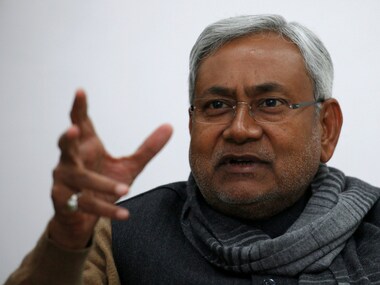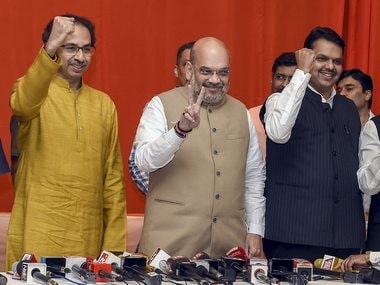Ahead of the Lok Sabha polls, Bihar chief minister Nitish Kumar has been engaged in caste arithmetic and in the process, he literally hijacked the RJD agenda to provide more reservation for the backward castes but planned the same for the upper caste instead.
In the just concluded Bihar Legislative Assembly Session, he got the 10 percent quota bill passed for the non-reserved category in government jobs and educational institutions amid ruckus raised by RJD legislators over the Muzaffarpur shelter home sexual abuse case.
“Those opposing this bill will face the music in the elections. I know a lot of RJD legislators who support the move. But they have got a message from Ranchi (read Lalu Prasad) to oppose it,” the Bihar chief minister said.
Nitish followed the bill with a unanimous resolution passed by the Assembly calling for the Union government to hold a caste census in 2021 so that quota could be given in proportion to the population. After that Nitish announced doles to Tola Sewaks by increasing their monthly salary from Rs 8,000 to Rs 10,000 a month.
The Tola Sewaks were recruited by the Nitish government to aid and help families belonging to the Mahadalit and extremely backward castes. The opposition has called them government paid JDU workers who assist the party during polls.
With this move, the Bihar chief minister has put the RJD on the backfoot.
“The chief minister was making it sound as if we were opposing the bill and the resolution. The fact was that we were questioning the role of the chief minister in the Muzaffarpur shelter home case,” said senior RJD leader Abdul Bari Siddiqui.
However, even RJD leaders privately agree that Nitish has blunted a political agenda the party was thinking of raising in the coming Lok Sabha polls. The RJD is the only political party to have opposed the non reserved category quota. It has angered its ally particularly the Congress but the party has dug in its feet.
RJD leader Tejashwi Yadav recently undertook the ‘Berojgari Hatao, AArakshan Barhao’ (Remove unemployment, increase quota) in three districts of North Bihar in which he demanded increase of quota to 90 percent.
“Nitish has ensured that NDA does not face a backlash for upper caste quota,” said a RJD MLA.
Ever since he parted ways with Lalu Prasad to form his Samata Party with George Fernandes, Nitish has come to realise the importance of caste as his party won only seven of the 324 seats of joint Bihar largely because it was perceived as a party of Kurmis-a section of backward caste, to which Nitish belongs to. Since then along with development agenda he has been tinkering with caste. Just before the 2005 Assembly polls, he got the Extremely Backward Castes — a group of 150 castes which constitute 29 percent of the population to vote for the NDA. In the 2010 assembly polls, Nitish played the Mahadalit card, taking away 21 of the 22 Dalit sub-castes and offering them doles. On both occasions, his moves paid rich electoral dividends.
The upper castes, which constitute 12 to 15 percent of the population, have been the epicentre of NDA’s vote bank. However, when Nitish split with the BJP, the upper castes sided with the BJP which proved disastrous for Nitish as the JDU won only two of the Lok Sabha 40 seats in Bihar.
“The upper castes had been lately angry with NDA over the SC/ST Atrocities Bill of the Union government. BJP leaders had to face black flags. Nitish realises that the NDA cannot afford to lose the upper caste votes if NDA is to win Bihar. The upper castes influence votes more than their population. Yet at the same time, Nitish knows the danger of the polls becoming an upper caste versus backward caste battle. In the 2015 Assembly polls, it was Lalu Prasad who lapped up a statement of RSS chief Mohan Bhagwat and turned it into a caste referendum. The RJD is trying to bring in the same effect,” said a JDU minister.
source: Firstpost.com








































